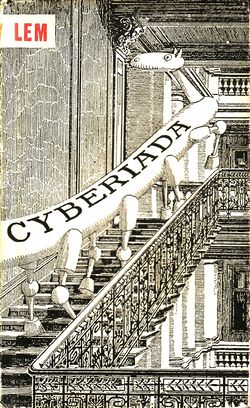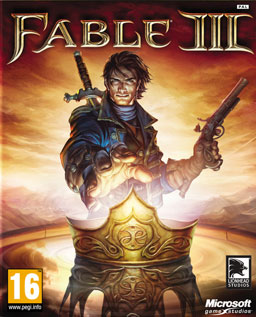
Posthumanism or post-humanism is an idea in continental philosophy and critical theory responding to the presence of anthropocentrism in 21st-century thought. Posthumanization comprises "those processes by which a society comes to include members other than 'natural' biological human beings who, in one way or another, contribute to the structures, dynamics, or meaning of the society."

Transhumanism is a philosophical and intellectual movement that advocates the enhancement of the human condition by developing and making widely available new and future technologies that can greatly enhance longevity, cognition, and well-being.

Life extension is the concept of extending the human lifespan, either modestly through improvements in medicine or dramatically by increasing the maximum lifespan beyond its generally-settled biological limit of around 125 years. Several researchers in the area, along with "life extensionists", "immortalists", or "longevists", postulate that future breakthroughs in tissue rejuvenation, stem cells, regenerative medicine, molecular repair, gene therapy, pharmaceuticals, and organ replacement will eventually enable humans to have indefinite lifespans through complete rejuvenation to a healthy youthful condition (agerasia). The ethical ramifications, if life extension becomes a possibility, are debated by bioethicists.

A tyrant, in the modern English usage of the word, is an absolute ruler who is unrestrained by law, or one who has usurped a legitimate ruler's sovereignty. Often portrayed as cruel, tyrants may defend their positions by resorting to repressive means. The original Greek term meant an absolute sovereign who came to power without constitutional right, yet the word had a neutral connotation during the Archaic and early Classical periods. However, Greek philosopher Plato saw tyrannos as a negative form of government, and on account of the decisive influence of philosophy on politics, deemed tyranny the "fourth and worst disorder of a state."
Tyrants lack "the very faculty that is the instrument of judgment"—reason. The tyrannical man is enslaved because the best part of him (reason) is enslaved, and likewise, the tyrannical state is enslaved, because it too lacks reason and order.

David Pearce is a British transhumanist philosopher. He is the co-founder of the World Transhumanist Association, currently rebranded and incorporated as Humanity+. Pearce approaches ethical issues from a lexical negative utilitarian perspective.

Nick Bostrom is a philosopher known for his work on existential risk, the anthropic principle, human enhancement ethics, whole brain emulation, superintelligence risks, and the reversal test. He was the founding director of the now dissolved Future of Humanity Institute at the University of Oxford and is now Principal Researcher at the Macrostrategy Research Initiative.

The Cyberiad, sometimes subtitled Fables for the Cybernetic Age, is a series of satirical science fiction short stories by Polish writer Stanisław Lem published during 1964–1979. The first collected set of stories was originally published in 1965, with an English translation by Michael Kandel first appearing in 1974.
New eugenics, also known as liberal eugenics, advocates enhancing human characteristics and capacities through the use of reproductive technology and human genetic engineering. Those who advocate new eugenics generally think selecting or altering embryos should be left to the preferences of parents, rather than forbidden. "New" eugenics purports to distinguish itself from the forms of eugenics practiced and advocated in the 20th century, which fell into disrepute after World War II.
The Institute for Ethics and Emerging Technologies (IEET) is a technoprogressive think tank that seeks to "promote ideas about how technological progress can increase freedom, happiness, and human flourishing in democratic societies." It was incorporated in the United States in 2004, as a non-profit 501(c)(3) organization, by philosopher Nick Bostrom and bioethicist James Hughes.

Human extinction is the hypothetical end of the human species, either by population decline due to extraneous natural causes, such as an asteroid impact or large-scale volcanism, or via anthropogenic destruction (self-extinction), for example by sub-replacement fertility.
Playing God refers to assuming powers of decision, intervention, or control metaphorically reserved to God. Acts described as playing God may include, for example, deciding who should live or die in a situation where not everyone can be saved, the use and development of biotechnologies such as synthetic biology, and in vitro fertilisation. Usually the expression is used pejoratively and to criticize or argue against the supposedly God-like actions.
Pro-aging trance, also known as pro-aging edifice, is a term coined by British author and biomedical gerontologist Aubrey de Grey to describe the broadly positive and fatalistic attitude toward aging in society.

Fable III is a 2010 action role-playing video game developed by Lionhead Studios and published by Microsoft Game Studios for the Xbox 360 and Microsoft Windows. The third game in the Fable series, the story focuses on the player character's struggle to overthrow the King of Albion, the player character's brother, by forming alliances and building support for a revolution. After a successful revolt, the player becomes the monarch and is tasked with attempting to defend Albion from a great evil. The game includes voice acting by Ben Kingsley (Sabine), Stephen Fry (Reaver), Simon Pegg, Naomie Harris (Page), Michael Fassbender (Logan), Zoë Wanamaker (Theresa), Bernard Hill, Nicholas Hoult (Elliot), John Cleese (Jasper), Jonathan Ross, Adjoa Andoh (Kalin), Kellie Bright, and Louis Tamone.
In futurology, a singleton is a hypothetical world order in which there is a single decision-making agency at the highest level, capable of exerting effective control over its domain, and permanently preventing both internal and external threats to its supremacy. The term was first defined by Nick Bostrom.

CGP Grey is an American educational YouTuber, podcaster, and live streamer based in the United Kingdom who creates explanatory videos on subjects including politics, geography, economics, sociology, history, philosophy, and culture. In addition to video production, he is known for creating and hosting the podcasts Hello Internet with Brady Haran and Cortex with Myke Hurley.

Bioconservatism is a philosophical and ethical stance that emphasizes caution and restraint in the use of biotechnologies, particularly those involving genetic manipulation and human enhancement. The term "bioconservatism" is a portmanteau of the words biology and conservatism.
Moral enhancement, also called moral bioenhancement, is the use of biomedical technology to morally improve individuals. MBE is a growing topic in neuroethics, a field developing the ethics of neuroscience as well as the neuroscience of ethics. After Thomas Douglas introduced the concept of MBE in 2008, its merits have been widely debated in academic bioethics literature. Since then, Ingmar Persson and Julian Savulescu have been among the most vocal MBE supporters. Much of the debate over MBE has focused on Persson and Savulescu's 2012 book in support of it, Unfit for the Future? The Need for Moral Enhancement.
The societal effects of negligible senescence considers a scenario where negligible senescence is achieved on a societal wide level in humans. There is much controversy about the realistic timeline of such a scenario. The predictions vary in time starting from 2037 till later than the 21st century. The effects of negligible senescence has a profound impact on economy, climate, demographics and impacts social structures. The baseline scenario ceteris paribus of negligible senescence is more population growth while a larger healthier labor force would spur economic growth.
Existential risk studies (ERS) is a field of studies focused on the definition and theorization of "existential risks", its ethical implications and the related strategies of long-term survival. Existential risks are diversely defined as global kinds of calamity that have the capacity of inducing the extinction of intelligent earthling life, such as humans, or, at least, a severe limitation of their potential, as defined by ERS theorists. The field development and expansion can be divided in waves according to its conceptual changes as well as its evolving relationship with related fields and theories, such as futures studies, disaster studies, AI safety, effective altruism and longtermism.









